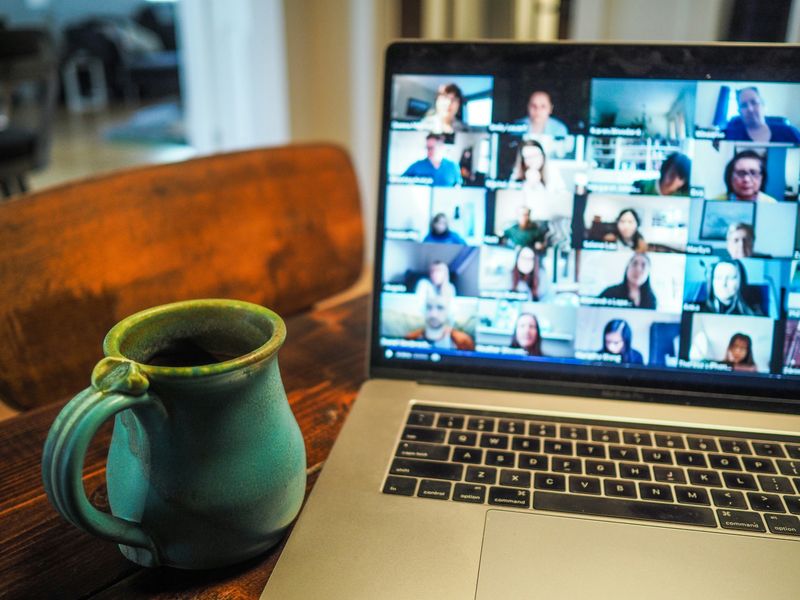 Image by Freepik
Image by Freepik
Imagine you've landed your dream job in a foreign country. Your colleagues represent a rich tapestry of cultures, and the world is your workplace. Now more than ever, it's clear: to succeed, you need to master cultural sensitivity when working abroad.

By understanding and respecting diverse cultures, you unlock doors to international opportunities. It's not just about fitting in — it's about thriving and making a real impact.

Equip yourself with the essential skills — from communication nuances to navigating misunderstandings — to supercharge your international career.
Understanding Cultural Sensitivity
 Photo by Memento Media on Unsplash
Photo by Memento Media on UnsplashCultural sensitivity is all about recognizing and respecting the professional norms, values, and behaviors of your diverse coworkers.
 Positive Impacts of Cultural Sensitivity
Positive Impacts of Cultural Sensitivity
Increases teamwork with your new colleagues
Less miscommunication and confusion with others
Builds trust and respect — important for forming strong professional connections
Skilled Communication
 Image by Freepik
Image by Freepik
A great communication tip for cultural sensitivity is to pay close attention to the subtle yet significant differences between verbal and non-verbal cues, especially when communicating with people from different cultures:
Verbal Communication
Language and Meaning: Understand how words and phrases can mean different things across cultures.
Meeting Conduct: Learn how different cultures approach business meetings, including how they make decisions and provide feedback.
Example: In Chinese business culture, decisions are often made collectively, involving many people coming to an agreement. This can be a slow process that requires extra patience for Westerners.
Non-Verbal Communication
Gestures and Body Language: Be aware of how simple handshakes or nods can mean different things to your diverse co-workers.
Facial Expressions: Understand that eye contact and facial expressions can be taken to mean different things around the world.
Example: In India, the "head wobble" is a unique gesture used to show agreement, acknowledgment, or a positive response. It's often seen as a sign of friendliness and understanding.
What Would You Do?

You've been assigned to lead a project with team members from the Thailand office. To prepare, you've researched Thai cultural norms and learned that they place importance on being polite and avoiding confrontation or embarrassment.
During your first virtual team meeting, you notice that there's a lot of silence after you ask a question. What's the best action to take in this situation?
 Photo by Chris Montgomery on Unsplash
Photo by Chris Montgomery on UnsplashA. Assume they didn't understand the question and rephrase it using simpler language.
B. Pause and wait patiently, giving team members time to collect their thoughts and respond.
C. Interrupt the silence by answering the question yourself to keep the meeting moving.
D. Ask team members individually in a private chat if they have any questions or concerns.
Quiz
Which action best demonstrates cultural sensitivity?
Respect In Action
 Image by Freepik
Image by Freepik
Cultural sensitivity in action means adapting to diverse professional norms and practices, a key to respectful international business interactions:
Workplace Norms
Observe workplace etiquette, such as dress codes and punctuality, and adapt to align with the professional practices of the host country.
Professional Conduct
Practice cultural-specific manners during professional interactions, paying attention to how those around you communicate.
Respect Structures
Interact appropriately with colleagues of different seniority levels, respecting local workplace structure and cultural views of authority.
Celebrate Cultural Events
Acknowledge local cultural and corporate events to show respect and build relationships in the workplace when appropriate.
Cultural Misunderstandings
 Image by Drazen Zigic on Freepik
Image by Drazen Zigic on Freepik
Despite your best efforts, cultural misunderstandings will happen! But don't worry — when you find yourself in this situation, there are steps you can take:
Embrace Misunderstandings
Maintain a positive, open-minded approach when misunderstandings occur, viewing them as valuable learning opportunities rather than setbacks.
Respond Effectively
Seek clarification in a respectful way to understand different viewpoints, and offer a sincere apology when necessary to ease any tension.
Learn from Mistakes
Reflect on these experiences to gain insights and use these situations as stepping stones for improving your intercultural intelligence.
Build Bridges
Work collaboratively with your international colleagues to find mutually respectful solutions and create an open feedback environment for cultural matters.
What Would You Do?

You're working on a multicultural team, and a coworker from The Netherlands has sent you an email that you find quite direct and critical of your recent work.
You're surprised by the tone, as this colleague is usually friendly and this isn't the type of workplace communication you're used to. What's the best action to take in this situation?
 Photo by Wes Hicks on Unsplash
Photo by Wes Hicks on UnsplashA. Respond immediately with your own direct feedback, addressing the criticism head-on.
B. Ignore the email and hope that the issue resolves itself without any further discussion.
C. Schedule a video call with your colleague to discuss the email and seek clarification.
D. Forward the email to your manager and ask them for guidance on how to handle the response.
Quiz
Which action best demonstrates cultural sensitivity?
Become a Global Citizen
 Image by KamranAydinov on Freepik
Image by KamranAydinov on Freepik
You've already come so far in your quest to become a more culturally sensitive coworker! Now it's time to level up even further to the role of global citizen.
You can achieve this by committing to continual learning, inclusive thinking, and active participation in cross-cultural understanding and collaboration:
 Lifelong Learning
Lifelong Learning
Stay updated on global business practices and cultural trends, and make a habit of continuously learning about the cultures you work with.
 Practical Immersion
Practical Immersion
Experience cultures firsthand through business travel or assignments abroad, and actively engage with diverse cultural groups within your professional network.
 Global Mindset
Global Mindset
Include different viewpoints in your business plans and choices, and welcome chances to join global projects or teams with people from various cultures.
 Advocacy
Advocacy
Encourage cultural sensitivity by setting an example and sharing your experiences and insights with others to help them learn and understand better.
Take Action
 Image by rawpixel.com on Freepik
Image by rawpixel.com on Freepik
Transform your knowledge of cultural sensitivity into impactful action!
Take these steps for success in global workplaces:
Your feedback matters to us.
This Byte helped me better understand the topic.










